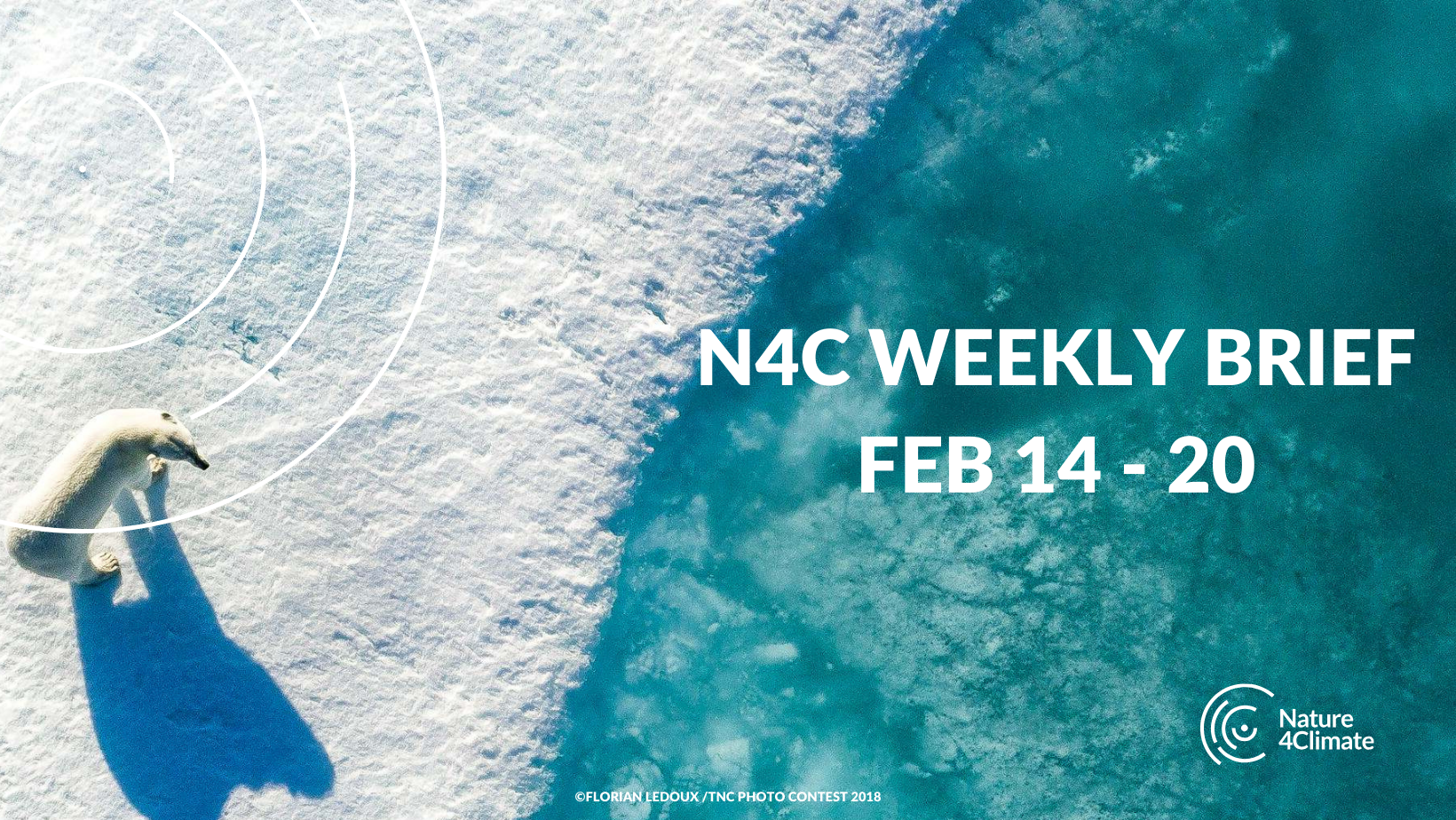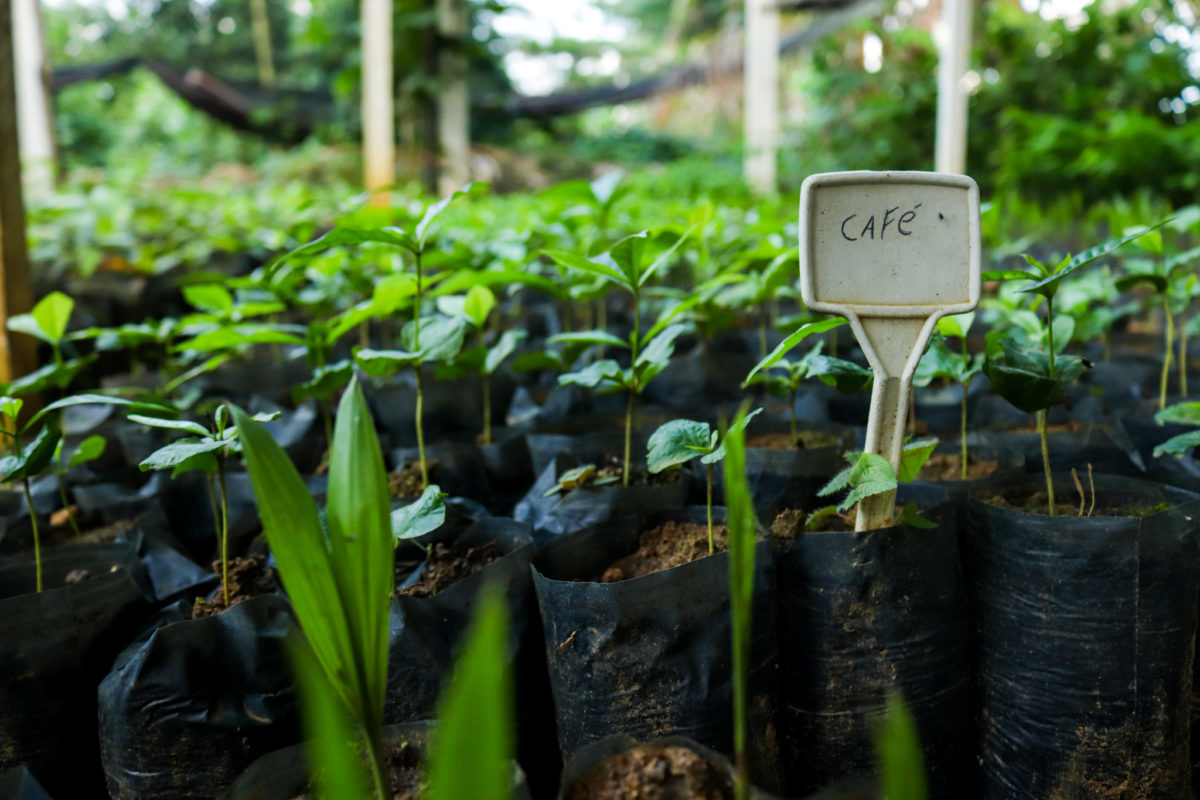
FEATURED NEWS
Nature Has Value. Could We Literally Invest in It?
The New York Times, Lydia DePillis, 18 February
The New York Times covers the growing belief among environmentalists, money managers and philanthropists that nature won’t be adequately protected unless it is assigned a market value. But after a wave of fierce opposition from right-wing groups and Republican politicians, and even conservationists wary of Wall Street, the US Securities and Exchange Commission pulled a proposal from the New York Stock Exchange to list these “natural asset companies” for public trading. The article digs into the philosophical debate over whether we need to set a price for natural riches to be preserved. Reuters shares a report from the London Stock Exchange Group stating the value of traded global markets for carbon dioxide (CO2) permits grew 2% to $948.75 billion in 2023. Platts reported earlier this year that despite growth in the global carbon market, nature-based (deforestation/conversion) credits saw an overall decrease in prices by nearly 70 percent in 2023. Euractiv shares a commentary calling for new financing models to secure ‘Landscape Financing’, a systemic approach to nature restoration, to meet the goals of the EU Green Deal.
Amazon rainforest could reach ‘tipping point’ by 2050, scientists warn
The Guardian, Jonathan Watts, 14 February
The Guardian covers a new study published in Nature that finds up to half of the Amazon rainforest could hit a tipping point by 2050 accelerating forest decline earlier than had been expected. The new study estimated that by 2050, 10% to 47% of Amazonian forests would be exposed to compounding disturbances that might trigger unexpected ecosystem-wide transitions and have an adverse knock-on effect for regional climate change. Carbon Brief also reports on the study and notes that last year the Amazon River Basin experienced an “exceptional drought” that was 30 times more likely to occur due to climate change, and around 20% of the Amazon has already been deforested and a further 6% is “highly degraded”. The Brazilian Report covers the strike that has been going on for over a month by employees of Ibama, the Brazilian federal agency responsible for protecting and monitoring the environment. The government’s refusal to increase the salaries of Ibama employees spurred the strike and its impacts have now reached the inspection work carried out inside the forest.
Global tree-planting push threatens African grasslands, warns report
Financial Times, Michael Peel and Kenza Bryan, 15 February
Financial Times reports the 34-country African Forest Landscape Restoration Initiative campaign to plant trees across Africa risks “double jeopardy” because it will damage ancient grassland ecosystems that absorb carbon dioxide while failing to fully restore depleted forests. The paper published in Science notes half the land earmarked for regeneration across the 100 million hectare campaign is in savannah or other non-woodland areas.
Palm oil deforestation makes comeback in Indonesia after decade-long slump
Mongabay, Hans Nicholas Jong, 13 February
Mongabay shares new data from consultancy TheTreeMap that finds deforestation for oil palm plantations has increased for the second year in a row in Indonesia, the world’s biggest producer of palm oil, bucking a decade-long decline in forest loss. A third of the 2023 deforestation occurred on carbon-rich peatlands, raising the potential for massive greenhouse gas emissions as these areas are cleared and drained in preparation for planting. The New York Times covers the results of Indonesia’s recent presidential election where Prabowo Subianto, a candidate who promised to continue the policies of departing president Joko Widodo. Subianto is expected to continue policies to boost biofuel production from palm oil, mining for nickel and rely on coal power causing major concerns amongst environmentalists. GreenBiz addresses five common misunderstandings about the EU’s new Regulation on Deforestation-free products (EUDR) which would prevent products containing Indonesian palm oil tied to deforestation from being sold across the economic bloc. BNN Breaking reports that Indonesia and Malaysia, another major palm oil producing nation, are petitioning for the implementation of the EUDR to be delayed to protect smallholder plantations.
What Europe’s egg-hurling farmers can teach us about climate progress
Grist, Max Graham, 20 February
Grist covers growing protests across the EU, and the world, as farmers dissent against climate-focused regulations. For the past few weeks, roads and city plazas in nearly every country in the European Union have been blocked by farmers angry about policies to cut tax breaks on diesel fuel, implementing more strict environmental regulations, and other measures that could reduce emissions. The backlash from farmers across the EU to these types of policies led the EU to drop agricultural emission reduction targets from its recently published climate plan. Reuters explains how worsening climate impacts are placing more financial pressure on EU farmers that may be compounded by the costs to transition to more sustainable practices without adequate financial support.
TRENDS – Nature4Climate’s Nature Finance Survey Reveals Key NbS Investments for 2024
More than 120 individuals from financial organizations, corporations and enabling companies responded to Nature4Climate’s (N4C’s) ‘Trends in Nature Positive Investments’ survey, which covered reasons for considering NbS, investment themes such as reforestation, mangrove restoration, and avoided peatland conversion capturing most attention, as well as interest in ‘nature tech’, and the developments needed to enable scaling of investments and financing to NbS.
COP28 – NATURE TALKS
At COP28, the Nature Positive Pavilion promoted Nature Talks, a platform where influential speakers and experienced leaders converged to deliver impactful TED-style talks on leading nature for climate action. Diverse experts shared transformative ideas, innovative solutions, and personal insights that inspire change and ignite conversations surrounding the crucial role of nature in addressing climate challenges for people and the planet.
In this talk, we invite you to listen to Dima Zogheib, Arup’s Associate Director:
FOR YOUR INFORMATION
Future of Life Institute, along with other signatories, call on decision-makers to urgently address the ongoing impact and escalating risks of the climate crisis, pandemics, nuclear weapons, and ungoverned AI.
TFND seeks feedback on guidance and metrics for financial institutions and eight real economy sectors, metrics for four sectors, and discussion papers on footprinting methodologies and advanced scenario analysis.
Verra publishes a Request for Proposals for the development of a new module for Avoiding Planned Deforestation projects. This module will support the estimation of emission reductions achieved by projects that reduce or avoid planned deforestation and it will form an integral part of Verra’s innovative REDD methodology.
Trove Research shares modeling by MSCI Carbon Markets, which suggests that demand for biochar carbon credits could grow 20-fold over the next ten years, despite short-term price compression.
Nature publishes a study investigating the three most plausible ecosystem trajectories, involving different feedbacks and environmental conditions, in the Amazon. Keeping the Amazon forest resilient will depend on a combination of local efforts to end deforestation and degradation and to expand restoration, with global efforts to stop greenhouse gas emissions.
Phys.org covers a study that used high-resolution satellite data to create the first high-resolution (accurate to five meters) and continental mapping of land use after deforestation across a wide area of the African continent, including wet and dry forests.
ISEAL publishes the final in a series of position papers that aims to provide companies and the organisations that support them with accessible and consistent guidance for effective investment and action in landscapes and jurisdictions. The 4th position paper focuses on company responsibilities for supporting credible landscape-scale monitoring.
Nature4Climate shares the results of a poll of financial professionals with an interest in nature-positive finance, revealing key motivations, themes, trends and challenges shaping nature markets.
IUCN releases an information brief proposing the IUCN Global Standard for Nature-based Solutions as the main operational framework to implement UNEA Resolutions. The standard focuses on achieving the major environmental, social, and economic goals in an integrated manner.
The Nature Conservancy publishes a discussion paper on grasslands as critical but endangered ecosystems.
UNEP releases its 2023 Annual Report, which details the work of the organization last year to provide key science and solutions on the triple planetary crisis, convene and support environmental negotiations, host critical multilateral environmental agreements, work to align funding with global processes, and support Member States to deliver on their commitments.
CASE STUDY
N4C is compiling an index of NBS case studies, together with an interactive map, to highlight action on the ground. Each week, we will be choosing a case study to present, to help give concrete examples of work being done to bring NBS theory into practice.
Reversing deforestation in Apuí
WHERE: APUÍ, BRAZIL
TYPE OF NCS SOLUTION: MANAGE
Inefficient cattle ranching techniques in the Apuí region of the Amazon Forest has pressured disadvantaged farmers to clear trees as existing grazing land becomes degraded and unsustainable. This WeForest project intends to restore 3,200 hectares of degraded land and protect 1,800 hectares of existing forest cover. One of the project’s primary initiatives is supporting the establishment of 175 hectares of regenerative organic coffee agroforestry using native trees.
NUMBER OF THE WEEK – 28 MtCO2e/yr
The emissions that could be sequestered annually by 2050 if Nigeria met its potential to reforest land that has been cleared of native vegetation. Nigeria is a member of the African Forest Landscape Restoration Initiative and has committed to restoring 4 million hectares of forest by 2030. See more details on the potential for natural climate solutions in N4C’s naturebase.
GOOD NEWS
After Shutting Down, These Golf Courses Went Wild
A small number of shuttered golf courses around the country have been bought by land trusts, municipalities and nonprofit groups and transformed into nature preserves, parks and wetlands. For example, in San Geronimo, Trust for Public Land is transforming a former golf course by reconnecting floodplains and removing fish barriers, allowing access to more robust migratory and breeding grounds for endangered coho salmon and threatened steelhead trout. Trails are planned that would skirt sensitive habitats, making the land a publicly accessible ecological life raft, starkly different from its time as a golf course.
